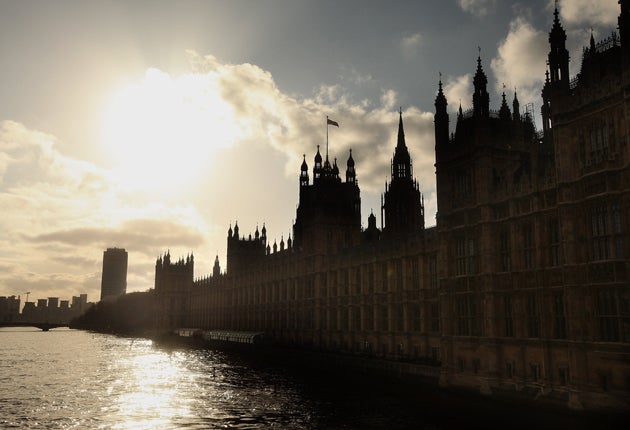New peers face time limit in House of Lords

All new peers should be appointed to the House of Lords for a fixed term limited to three parliaments - up to 15 years - as the next step towards a democratically elected second chamber, a report recommended.
The report published by Conservative MPs Sir George Young and Andrew Tyrie, sets out a series of reforms which the authors say could be introduced quickly without provoking a time-consuming clash with peers or distracting Parliament from the task of dealing with the recession.
MPs voted in 2007 for an 80 per cent or 100 per cent elected Upper House - something which Gordon Brown has indicated will feature in Labour's manifesto for the general election expected next year.
But Sir George and Mr Tyrie - both former members of David Cameron's Conservative Democracy Task Force - said there is no need to wait until after the election to introduce "term peers" and shake up the Lords expenses system.
At present, the vast majority of new Lords are made life peers and can retain their seats for decades until their deaths. Mr Brown intends to legislate before the election to remove the remaining 92 hereditary peers.
Launching the report An Elected Second Chamber: A Conservative Response, Mr Tyrie said: "A majority of the parliamentary Conservative Party support a largely or fully elected Lords, reflecting a sizeable majority in the Commons as a whole and in the country.
"This report is about how we get there, but it is also about the more immediate changes that we can make, such as term peers and an effective standards regime.
"These are changes that can be implemented without provoking a constitutional confrontation with the Lords. We cannot allow Parliament to be absorbed with such a row while the economic crisis remains so deep."
The report states term peerages with a "clearly-defined" time limit should become the only form of new addition to the Lords.
It also calls for Sir Christopher Kelly to be commissioned to chair a review to tighten up the Lords allowances regime after he completes his overhaul of House of Commons expenses in October.
And it recommends the creation of a wholly independent Appointments Commission to select all new peers, taking political party leaders out of the process altogether.
Over time, reform should aim for a smaller chamber of around 400-450 members which is 80 per cent elected by a proportional representation system, with a minority of independent expert appointees.
Commenting on the report, Liberal Democrat constitutional affairs spokesman Lord Tyler said: "David Cameron must now make clear how much of George Young and Andrew Tyrie's agenda he agrees with, and how quickly he would implement proposals to get real reform of the House of Lords off the ground.
"These two leading Conservative experts reinforce the importance of having a proportional system of election for the new Chamber in stark contrast to insistence from Conservative spokespeople that the Commons' system should be replicated.
"If we want a complementary chamber, using a first-past-the-post system that will create 'super-MPs' for cities and counties is the last thing we need."
Join our commenting forum
Join thought-provoking conversations, follow other Independent readers and see their replies
Comments
Bookmark popover
Removed from bookmarks